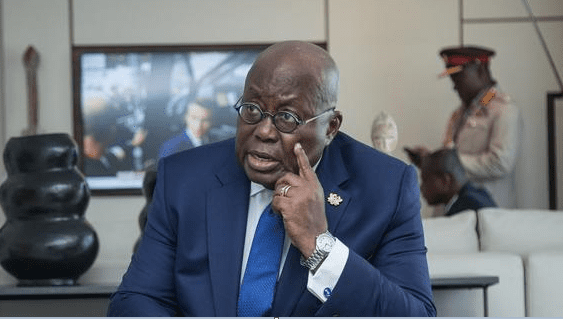A recent prediction by University of Cape Coast political scientist, Dr Jonathan Asante Otchere, has stirred controversy in Ghanaian political circles. Dr Otchere boldly stated that former President Nana Akufo-Addo is likely to be remembered as one of the least effective leaders in the country’s history. He attributed this harsh judgment to Akufo-Addo’s governance failures, which he believes played a significant role in the NPP’s defeat in the 2024 elections.
In a televised interview on Metro TV, Dr Otchere presented compelling evidence from research reports that highlighted widespread dissatisfaction with Akufo-Addo’s administration. He referenced the Ouaye report, which reportedly strongly criticized the former president and aligned with findings from Global InfoAnalytics indicating that 68% of respondents blamed Akufo-Addo for the NPP’s loss.
Furthermore, Dr Otchere pointed out that current NPP flagbearer Dr Mahamudu Bawumia is strategically distancing himself from Akufo-Addo’s legacy. He noted that Bawumia is actively repositioning himself as a leader in his own right, a move that he described as a political strategy to separate himself from the failures of the previous administration.
On the other hand, Dr Bawumia has attributed the NPP’s electoral defeat to a combination of factors, including economic pressures, policy controversies, and internal governance failures. During his Thank You Tour at the Takoradi Technical University auditorium, he highlighted the high cost of living, the arrogance of power, and unpopular policies like the E-Levy and DDEP as key reasons for the party’s loss.
Despite these challenges, Dr Bawumia emphasized that the NPP is regrouping and preparing to regain political power in the upcoming 2028 elections. With a focus on addressing the mistakes of the past and reconnecting with the electorate, the party is determined to bounce back and secure a victory in the future.
As Ghanaian politics continue to evolve, the narratives surrounding Akufo-Addo’s legacy and the NPP’s electoral defeat are shaping the country’s political landscape. It remains to be seen how these developments will influence future elections and the trajectory of governance in Ghana.








